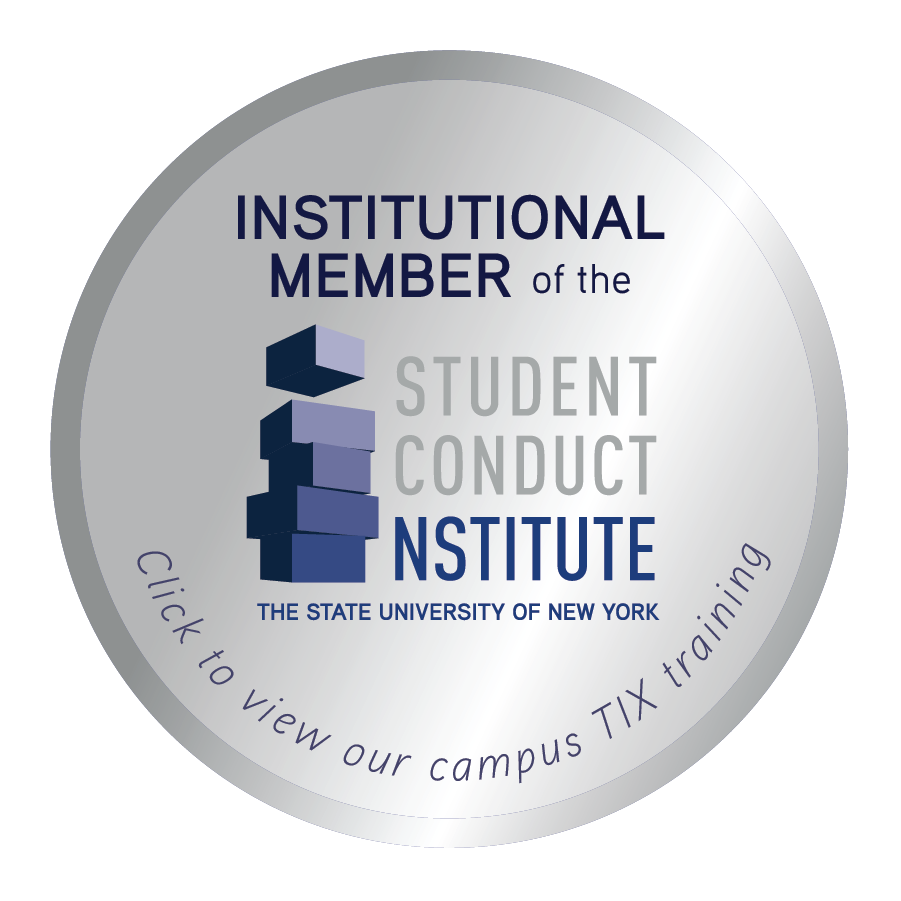Definitions
Affirmative consent means affirmative, conscious, and voluntary agreement to engage in sexual activity. It is the responsibility of each person invonlved in the sexual activity to ensure that they have the affirmative consent of the other or others to engage in the sexual activity. Affirmative consent must be ongoing throughout a sexual activity and can be revoked at any time
- Lack of protest or resistance does not mean consent.
- Silence does not mean consent.
- The existence of a dating relationship between the persons involved, or the fact of past sexual relations between them, should never by itself be assumed to be an indicator of consent.
It shall not be a valid excuse that the Respondent believed that the Complainant affirmatively consented to the sexual activity if the Respondent knew or reasonably should have known that the Complainant was unable to consent to the sexual activity under any of the following circumstances:
- The Complainant was asleep or unconscious.
- The Complainant was incapacitated due to the influence of drugs, alcohol, or medication, so that the Complainant could not understand the fact, nature, or extent of the sexual activity.
- The Complainant was unable to communicate due to a mental or physical condition.
In addition, it shall not be a valid excuse to alleged lack of affirmative consent that the Respondent believed that the Complainant consented to the sexual activity under either of the following circumstances:
- The Respondent’s belief in affirmative consent arose from the intoxication or recklessness of the Respondent.
- The Respondent did not take reasonable steps, in the circumstances known to the Respondent at the time, to ascertain whether the Complainant affirmatively consented.
A complianant is an individual who is alleged to be the victim of conduct that could constitute sexual harassment under this policy.
A formal complaint is a document filed by a Complainant or signed by the Title IX Coordinator alleging sexual harassment against a Respondent and requesting that the University investigate the allegation of sexual harassment. At the time of filing a Formal Complaint, a Complainant must be participating in or attempting to participate in the education program or activity of the University with which the Formal Complaint is filed.
A grievance process is the fact-finding process from the time of the filing of the Formal Complaint through the final determination of an appeal (if any).
A respondent is an individual who has been reported to be the perpetrator of conduct that could constitute sexual harassment under this policy.
A supportive measure is a non-disciplinary, non-punitive individualized services offered as appropriate, as reasonably available, and without fee or charge to the Complainant or the Respondent before or after the filing of a Formal Complaint or where no Formal Complaint has been filed. Such measures are designed to restore or preserve equal access to the University’s education program or activity without unreasonably burdening the other party, including measures designed to protect the safety of all parties or the University’s educational environment, or deter sexual harassment. Supportive measures may include counseling, extensions of deadlines or other course-related adjustments, modifications of work or class schedules, campus escort services, mutual restrictions on contact between the parties, changes in work or housing locations, leaves of absence, increased security and monitoring of certain areas of the campus, and other similar measures. Supportive measures may also include written notification about available services both within the institution and the community and options for available assistance as required by the Clery Act. Supportive measures are not disciplinary measures.


